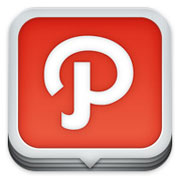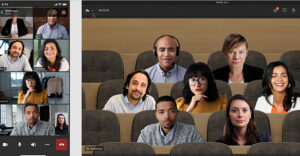
Norway-based Opera Software opened access Tuesday to what it described as a “revolutionary” technology that allows average computer users to set up browser-based servers to share files and photos, stream music and chat.
“Unite,” as the service is called, is included in a beta release of the company’s Opera browser, which ranks a distant third behind Internet Explorer and Firefox in user adoption worldwide.
How It Works
A Unite-enabled Opera browser allows users to designate the content they want to share and who should have access to it via a custom URL. Access can be set to public, password-restricted or private access for the account owner only.
Users who want to access the Unite browser-based server need not be running Opera, according to the company, but some services did not appear to work Tuesday when accessed from Firefox.
Opera did not respond to an email request for comment about the new service. However, in a statement, Opera CEO Jon von Tetzchner called the technology “one of our most significant innovations yet, because it changes forever the fundamental fabric of the Web.”
The service currently lets users share files and photos, stream music, chat and leave messages for friends using a virtual refrigerator motif. In a posting to the company’s blog, Opera product analyst Lawrence Eng said the initial set of applications constitutes little more than a demo.
“The key to Opera Unite is that it enables a whole new class of social software on the Web, applications that benefit from two or more people being online at the same time,” Eng wrote.
User-Made Apps on the Way
Developers, including average users, will be able to use HTML, CSS and JavaScript to make and upload new services that others can install on their own Unite sites, according to Opera.
An example, Eng wrote, might be a jukebox that mixes playlists submitted by a group of online friends. Each user would hear the same distributed playlist, “harking back to the days of going to a friend’s house to listen to records,” he wrote.
Democratizing the Web, Again
With examples like that, it’s clear Unite is making an effort to bring the Web back to its peer-to-peer roots, Carl Howe, director of consumer research for the Yankee Group, told TechNewsWorld.
“It’s an attempt to change consumers from, well, consumers to producers,” he said. “The idea is that the Internet doesn’t have to be asymmetric. It was originally designed as a peer-to-peer world, and Opera is trying to make it go back to that.”
The service isn’t exactly peer-to-peer, though. It still requires Opera’s servers to act as intermediaries, Howe said.
Neither is it a novel technology. Other services have mimicked the ad-hoc server concept, he noted.
Still, Unite could appeal strongly to “up and coming digital citizens” who are beginning to chafe at the conventions of the Internet world, where the content users want to share has to be uploaded and accessed remotely.
“In many ways, it’s what people do on Facebook today, without the Facebook,” observed Howe.
It’s too early to say whether other browser providers will mimic Opera’s offering, or when, he said.




















































